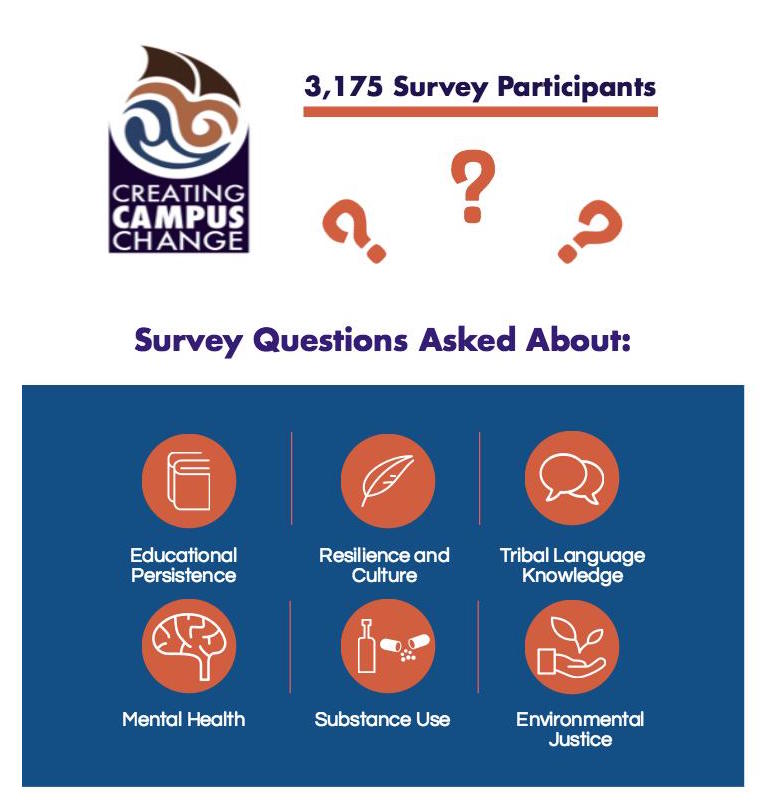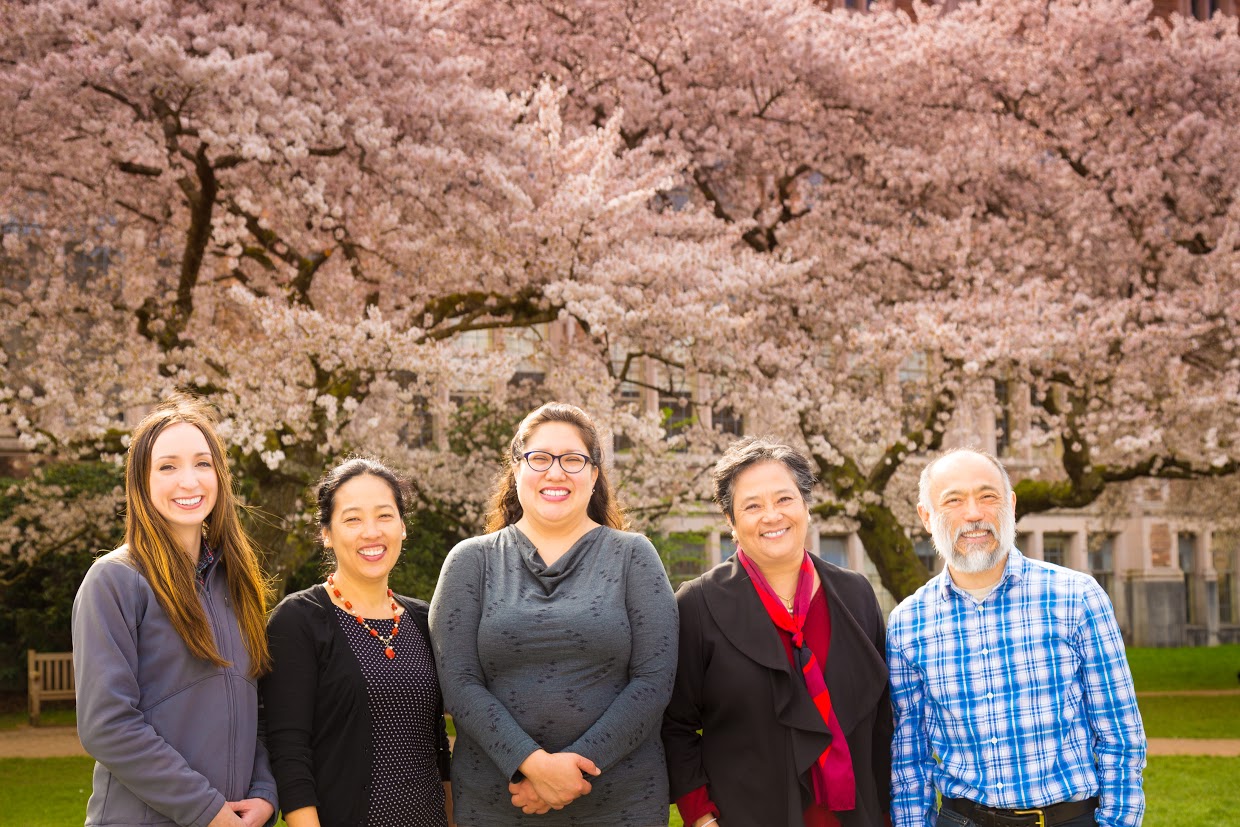Making Data History in Native America
Just Finished the Largest Psychological Epidemiology Survey Ever in Indian Country 🔑
The Indigenous Wellness Research Institute (IWRI) at the University of Washington just closed data collection on the Creating Campus Change (CCC) project after nearly one year in the field. We are stoked to announce that 3,175 students from 22 Tribal Colleges and Universities (TCU) across the US and Canada completed the survey, making CCC the biggest survey ever conducted in Indian Country.

Self-Determination in the Era of Big Data
This achievement is kind of a big deal. As sovereign Nations, governance is in the hands of Tribes themselves, and so are the responsibilities of creating healthy environments and healthy communities.
Indian Country is currently in crisis mode with youth suicide rates 2.5 times higher than non-Indigenous communities, and rates of obesity, diabetes, substance abuse and mental illness all well above average. Currently, data driven efforts to address these issues are lacking. IWRI's innovative research hopes to lead breakthrough discoveries and policy advancement across the Indigenous communities of North America.
The research design of Creating Campus Change fundamentally supports self-determination. Ownership of these data and analyses is shared between the schools and Tribes involved with the study.
 Creating Campus Change – TCU Research Team (L-R): Tess Abrahamson-Richards, Maya Magarati, Myra Parker, Bonnie Duran (Principal Investigator), Leo Egashira. Not Pictured: Many other IWRI and TCU staff who contributed to actualizing this.
Creating Campus Change – TCU Research Team (L-R): Tess Abrahamson-Richards, Maya Magarati, Myra Parker, Bonnie Duran (Principal Investigator), Leo Egashira. Not Pictured: Many other IWRI and TCU staff who contributed to actualizing this.
Historically, Indigenous communities have been overwhelmed with outside "experts" who try to control and interfere with Indian affairs. Progress in self-determination rejects outsiders in favor of culturally adaptive autonomy. This study is Native from beginning to end - researchers, TCU support staff, Tribal partners and communities themselves all are Indigenous identified with exposure to outcomes on deep personal levels.
Next Steps
We now have a lovely set unverified, unknown data. Much work remains, including cleaning, quantitative analysis, reporting and returning data to the schools.
Additionally, 7 of the 22 TCUs have implementation of an intervention and follow-up with students who demonstrate high alcohol consumption, through July 2018. TCUs are implementing policy and institutional interventions at 3 of those 7 schools, and finally, continued work with tribal partners on translation and dissemination of findings.
Data as a Unifying Force
The excitement generated by CCC’s rich dataset has led to discussions on collaboration between the UW Team and the American Indian Higher Education Consortium (AIHEC) in applying for NIH’s Native American Research Centers for Health grants to conduct secondary data analysis and three-times-a-year writing retreats with representatives from 8 TCUs.
Were the proposal funded, analysis of the CCC dataset and the capacity-building and policy benefits that are realized from that will continue beyond 2018. The survey study was funded by the National Institute on Minority Health and Health Disparities, Award #5P60MD006909. The intervention study is funded by the National Institute on Alcohol Abuse and Alcoholism, Award #5R01AA022068.
I had a blast lowkey serving in a data analyst role for this project, leading the creation of our target population set. This included munging and aggregating multiple, longitudinal and starkly disparate sets of TCU data.